How Russia’s war is boosting China’s ambitions to reshape our post-WWII world
The war has captured the tectonic shifts reshaping the trajectory of the 21st century. But it has also exposed how unprepared Europe was for conflict and the new strategic paradigm.
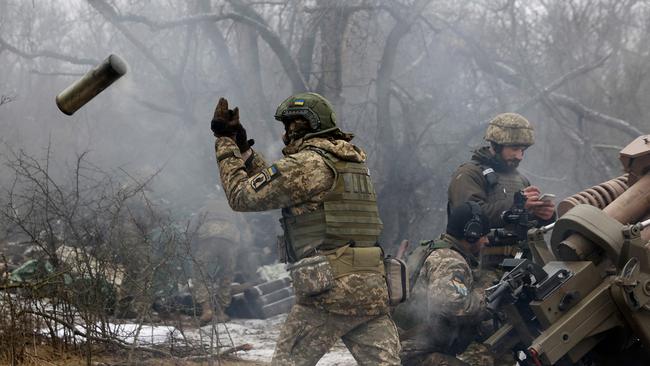
The European project faces its greatest challenge since World War II in adapting to the consequences of the Ukraine conflict, but the verdict is out on how successfully this transition is being managed by the West.
The war has captured the tectonic shifts under way in world affairs which will shape the trajectory of the 21st century. But it has also exposed how unprepared Europe was for conflict and the new strategic paradigm heralded by Russia’s invasion.
One key interpretation is to view the war as a landmark event for ushering in the return of a strategic era where the “systemic rivalries” between nation states – the clash of political values and ideologies – can spill into open combat and defy containment.
European Commissioner for Justice Didier Reynders told The Weekend Australian the risk of great power conflict was back, and the lesson of the Ukraine invasion was relevant in other theatres, including the Asia-Pacific.
“It’s a reminder also for Australia, for the US, for many others, that it’s possible to have such a kind of conflict on the open soil,” he said. “Without the huge reaction of the international community … it was possible, maybe, to think about possible action from China in Taiwan, now or in some years.
“It’s important to show that it’s not only a Ukrainian situation, it’s a situation possible to have in another part of the world.”
With the conflict poised to enter its second year, The Weekend Australian has conducted a series of interviews with senior EU officials on the key lessons Brussels has taken from the invasion, seen as the most dangerous turn in European geopolitics since 1939.
The big picture view, shared broadly, is that Russian President Vladimir Putin can no longer win the conflict militarily and that Russia will be economically crippled by a combination of economic sanctions and reconstruction costs.
Russia’s invasion is deemed a failure on Putin’s part for isolating Moscow, pushing Ukraine closer to the West and tightening the strategic alignment between Europe and the US after the Trump presidency.
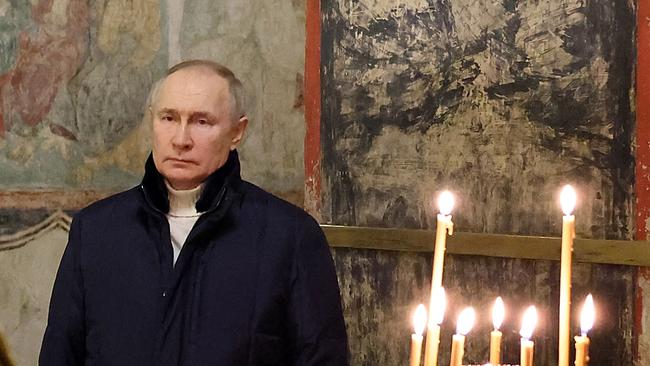
The European Commission’s lead spokesman for foreign affairs, Peter Stano, told The Weekend Australian that Putin “cannot win militarily on the battlefield”.
“Actually he’s sustaining one failure and one defeat after another and he has to retreat,” he said. “It’s a strategic failure. It’s a military failure. It’s a moral failure … He (Putin) needs to be defeated.”
But this is accompanied by the concession that Europe badly misjudged Putin’s intentions and underestimated the threat he posed to the international order, with many nations increasing their dependence on Russian energy in the years after the 2014 annexation of Crimea.
The reality is Europe started from a position of disadvantage in responding to the conflict and key concerns remain over how effectively it can deal with a more unpredictable Russia which has entrenched itself in the international system as a long-term disrupter and global pariah.
While Moscow is seen to have blundered badly in operational terms, there is still no end to the war in sight and no clear pathway to achieve peace.
The extent to which the US and Europe can continue to underwrite the Ukrainian war effort as the world teeters on the verge of global recession will also test the West’s resolve.
“His (Putin’s) … long-term thinking is that the EU will eventually break apart exactly because of the cost it’s imposing on us because the people are also used to high living standards,” Stano said. “But he miscalculated because he was also thinking there would be a lack of European unity in our reaction.”
But Stano adds: “He (Putin) cannot back down because he’s in the corner, he pinned himself down, and there is no good way out for him.”
There are widely held expectations the fighting could drag out for years, perhaps with no formal political resolution and a “frozen conflict” prevailing, similar to the 1953 ceasefire which ended hostilities on the Korean Peninsula.
What victory looks like for either side is uncertain.
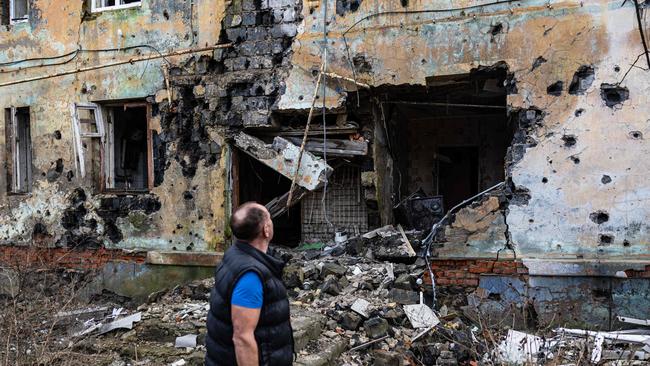
Already Ukraine’s reconstruction is estimated at about €600bn, millions of people have been displaced and an estimated 7000 civilians (including more than 400 children) have been killed.
“This is the biggest and the worst thing that could have happened in Europe since the Second World War,” Stano said. “It’s the most dangerous because a nuclear power and a permanent member of the Security Council of the UN is involved. We haven’t had this in 70 years.”
Taking matters into their own hands, many nations responded to the Russian invasion of Ukraine through the imposition of an arsenal of trade sanctions described by The Economist as having a “ferocity and scope not seen since the 1940s”.
At the end of 2022, Reynders said EU nations had frozen €18.8bn of assets belonging to Russian oligarchs and entities, while a further €300bn of Russian central bank reserves had also been immobilised.
While legal hurdles prevent the frozen Russian assets from being seized, Reynders has flagged they could still be used as “leverage” to encourage the “real participation of Russia in the reconstruction (of Ukraine)” – a massive task.
The economic consequences of the war are already echoing across the world, having led to a global increase in gas prices, elevated energy bills, disrupted supply chains, higher international inflation and slower growth.
Senior EU officials argue that the war has served as another marker of a new and more nuanced phase of globalisation, with one telling The Weekend Australian: “We do recognise that there are economic interdependencies, but we have to be very conscious of the risks which are linked to critical dependencies which become vulnerabilities and which can be abused … that we need to tackle.”
This is evident in the urgency the conflict has created around diversification and greater economic resilience. Europe was caught on the back foot in this regard, with the war distilling how immediate and severe the challenge was.
“That’s why the expression, ‘strategic autonomy’ came into the political vocabulary in Europe,” Stano said.
“Strategic autonomy means that we need to be able to sustain ourselves and also protect ourselves when the situation requires it. The Russian invasion only brought another aspect to it.
“On energy, for example, it became so obvious that since 2014, when we’ve seen for the first time what Putin is after with Ukraine with the annexation of Crimea, that some of the member states actually didn’t take any lesson from it. They increased their dependency on Russia’s fossil fuels.
“I think we recognised collectively as the European Union after the invasion from February 24 that we actually underestimated Putin and that we misread what happened in 2014. There were member states who were saying, ‘this is just the start’. They belonged to the former Soviet Union, so they know people like Putin … You need to push them by force because they will try this salami method in a way, to take slice by slice by slice by slice. And suddenly, you are facing a situation like in Europe in 1938.”
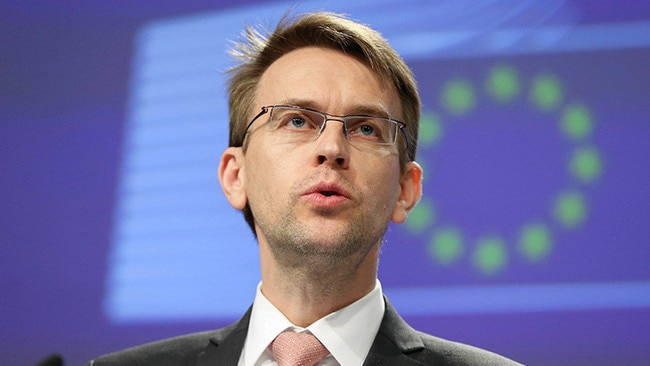
European Commission spokesman for Energy and Climate Tim McPhie told The Weekend Australian the plan was to phase out dependence on Russian energy completely. No hard timeline has been set but decisive steps have been taken.
The EU halted Russian coal in August and an embargo was placed on Russian oil in early December. It also struck the political agreement needed for the G7 and Australia to impose a $60 per barrel price cap on Russian oil. But gas remains a more difficult challenge.
“Last year, for the whole year 2021, Russian gas imports were around 40 to 45 per cent of our total imports … As of October, it was 15 per cent. So we’ve made a big cut there,” McPhie said.
McPhie acknowledged there was “going to be an increased risk” of blackouts across the northern hemisphere winter but said “all the signals we have are very reassuring in terms of gas and electricity”.
“In terms of electricity … there is a heightened risk compared to an average year, but it’s very much under control. The idea of a European blackout would depend on a whole series of very unlikely things all happening at the same time.”
With the economic consequences of the war biting hard, one of the key questions for 2023 is whether the West can sustain its ongoing military support for Ukraine.
By the end of 2022, Europe had funnelled up to €10bn in military support to Ukraine, while the US had provided about $US22bn. Stano acknowledged the Ukrainian war effort was dependent on foreign assistance, but this would be irrelevant without the “bravery and determination” of the Ukrainian people.
“This is a very small price to pay compared to what the Ukrainians are paying because they pay with their blood,” Stano said. “Ukrainians are fighting for our rights and freedoms … of being able to decide where you want to belong.”
Reynders was more tempered, conceding that “over a long period of time it’ll be very difficult to continue to maintain such huge pressure”.
Critically for Australia, there is also keen European interest in China’s role – an interest which was heightened by the signing of a “no limits” partnership with Moscow just weeks before the February 24 conflict.
Stano said there were outstanding questions over how Beijing could use its influence with Putin. “Our point was, OK, so if you have this ‘no limits’ relationship, use it,” he said. “Use your influence on Russia. Make them stop the war.”
Another senior EU official said the February 4 “no-limits” agreement showed the “Russians have successfully entered the mind of the Chinese leadership”.
“The Chinese ultimately want to change the international system. They are deeply convinced that the system of the post-Second World War was designed to serve US and Western interests,” the official said. “I think they have a very clever, global, long-term, well-conceived strategy in place for years already on how to turn the whole thing around.”
Responsibly managing the twin challenges presented by Beijing and Moscow is a task beyond the EU and will require a collective effort that will test US power over the century.
Strong relations between the US and Europe will prove essential, with co-operation under Joe Biden’s leadership seen to have lifted to its closest level in decades.
“The way we are now discussing with the US not only in this EU/US dialogue with China, but also in the Trade and Technology Council, and in other dialogue formats we have on the Indo-Pacific or on Russia, reminds me of the best times when we had a so-called new transatlantic agenda during the George Bush Sr and then Bill Clinton years,” one EU official said.
Stano said co-operation was now “unprecedented” and that Europe and the US had “embarked on a completely new quality of relationship.” This is a step in the right direction, but progress could always be unwound depending on who wins the US election next year with Trump seeking a second tilt at the top job.
There will be a long tail to the strategic consequences of the Ukraine war. But the conflict is broadly seen as the most naked and serious challenge to the international system this century. It has already exposed serious European vulnerabilities.
Yet there is always the possibility that the war could still take a turn for the worse. No one interviewed by The Weekend Australian in Brussels dismissed the use of tactical nuclear weapons by Putin. They simply warned the consequences would be unimaginable.
“It would be a red line for everyone in the international community,” Stano said. “This would be the red line and eventually, the end of humankind, at least in Europe.”



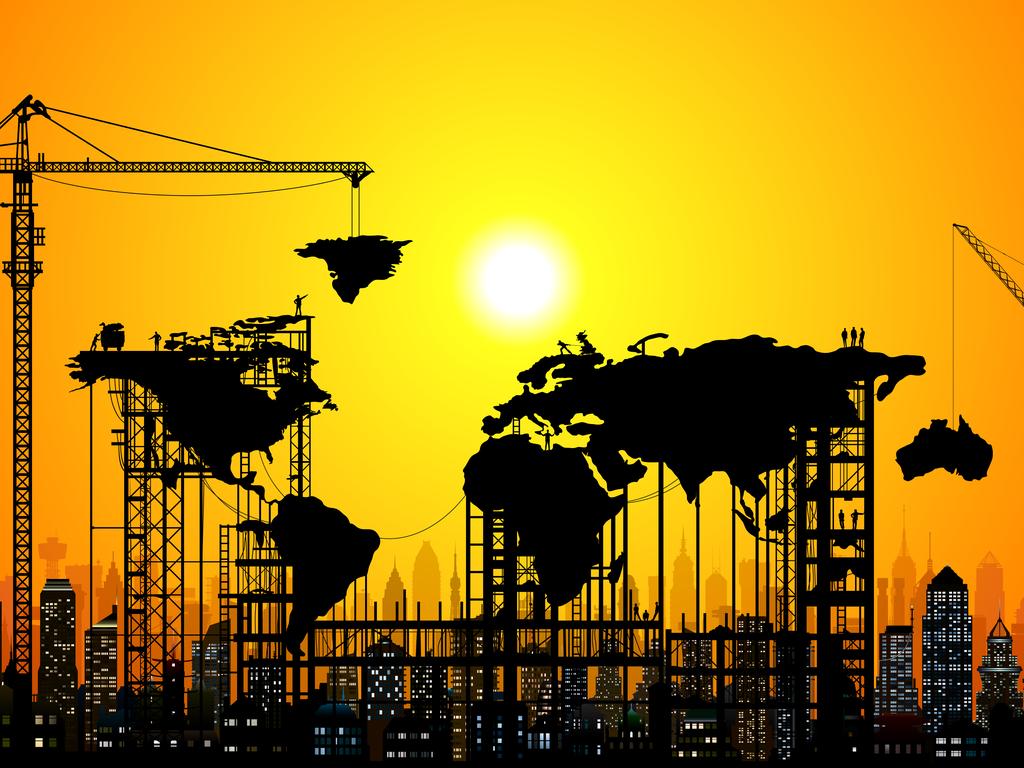
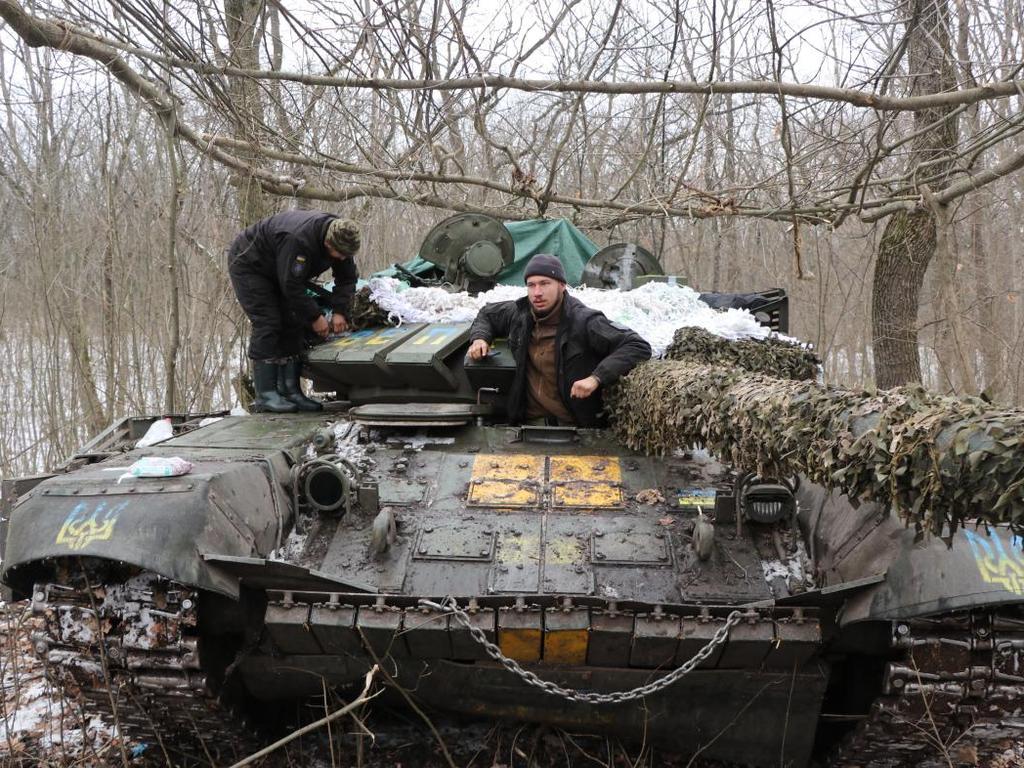

To join the conversation, please log in. Don't have an account? Register
Join the conversation, you are commenting as Logout